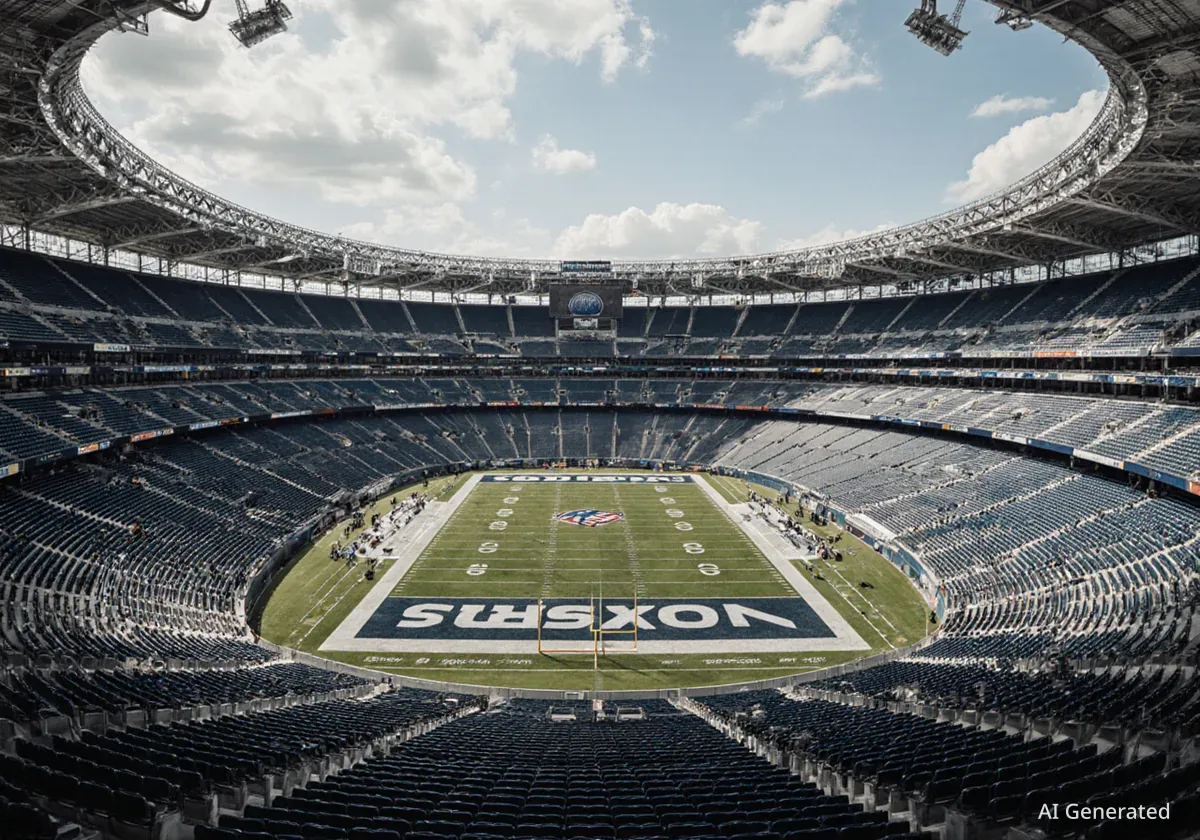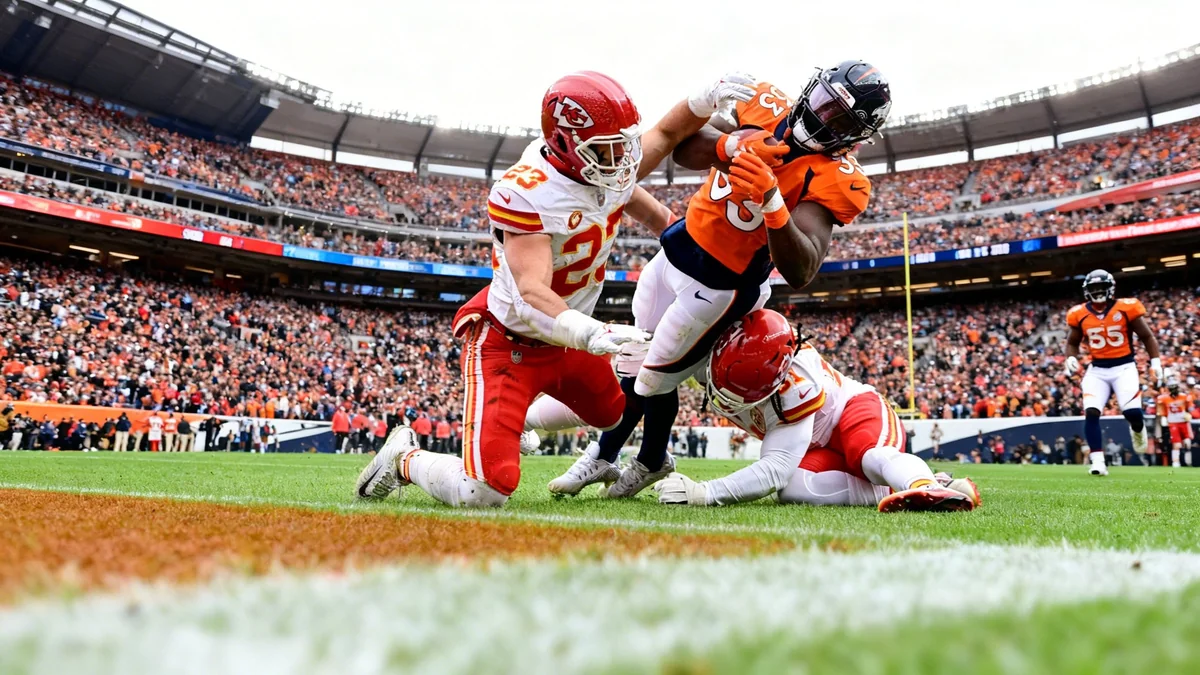The Los Angeles Chargers significantly altered their financial flexibility by acquiring pass-rusher Odafe Oweh from the Baltimore Ravens. The trade, made to address a critical need on the defensive line, has reduced the team's available salary cap space to one of the lowest figures in the NFL.
While the move provides immediate reinforcement with Khalil Mack on injured reserve, it comes with a substantial financial commitment. Oweh's contract now ranks as the third-largest cap hit on the Chargers' roster, illustrating the high price the team was willing to pay for defensive help.
Key Takeaways
- The Los Angeles Chargers acquired pass-rusher Odafe Oweh from the Baltimore Ravens.
- Oweh's contract carries a cap hit of $9.57 million for the current season.
- The trade reduced the Chargers' available salary cap space to approximately $2.8 million.
- Los Angeles now ranks near the bottom of the NFL in terms of financial flexibility.
- Oweh's cap hit is the third-highest on the team, behind only Justin Herbert and Derwin James.
Details of the Odafe Oweh Trade
The Los Angeles Chargers executed a trade with the Baltimore Ravens to acquire outside linebacker Odafe Oweh, a former first-round draft pick. The move was prompted by an urgent need to strengthen the team's pass rush following the placement of veteran star Khalil Mack on injured reserve.
General Manager Joe Hortiz acted decisively to bring in a player with a high pedigree. Oweh, selected 31st overall in the 2021 NFL Draft, offers the potential for both immediate impact and long-term value. He participated in practice with his new team this week and is expected to see significant playing time in his debut.
Background on Odafe Oweh
Odafe Oweh was a standout player at Penn State, known for his exceptional athleticism. In his NFL career with the Ravens, he recorded 13 sacks and forced five fumbles over three seasons. The trade reunites him with Joe Hortiz, who was part of the Baltimore front office that drafted him.
The trade compensation details were secondary to the immediate need for defensive talent. However, the financial implications of the deal are significant and have reshaped the Chargers' salary cap structure for the remainder of the season.
Analyzing the Contract and Cap Hit
Odafe Oweh is currently playing on the fifth-year option of his rookie contract. This option, which teams can exercise for their first-round picks, comes with a fully guaranteed salary for the season. For Oweh, this amounts to a substantial figure that the Chargers have now absorbed.
The Financial Breakdown
Oweh's fifth-year option carries a total cap hit of $9.57 million for the 2024 season. By trading him, the Baltimore Ravens cleared a significant portion of this amount from their books. According to a report from ESPN's Adam Schefter, the Ravens saved approximately $8 million in cap space through this transaction.
Chargers' New Top Cap Hits
- Justin Herbert (Quarterback)
- Derwin James (Safety)
- Odafe Oweh (Outside Linebacker) - $9.57 million
Oweh's contract immediately places him among the highest-paid players on the Chargers' roster for the current season.
This single move has propelled Oweh's salary to become the third-largest cap number on the entire Chargers roster. Only franchise quarterback Justin Herbert and All-Pro safety Derwin James account for a larger portion of the team's salary cap this year. This highlights the magnitude of the financial commitment the front office made to secure his services.
Impact on Chargers' Salary Cap Flexibility
Before the trade, the Los Angeles Chargers were in an enviable financial position. The front office, led by Joe Hortiz, had maintained one of the highest amounts of available salary cap space in the entire league. This flexibility allowed them to make roster moves, sign free agents, or handle unforeseen expenses throughout the season.
That financial landscape has now changed dramatically. After absorbing Oweh's $9.57 million contract, the Chargers' available cap space has dwindled. The team is now left with only about $2.8 million in free cap space.
"The numbers surrounding the move speak to the risk the front office was willing to take while the team attempts to correct course on the field."
This reduction places the Chargers near the bottom of the NFL rankings for available cap space. While they previously had the freedom to pursue almost any available player, their options are now much more limited. Any further additions to the roster would likely require creative accounting or contract restructures to create the necessary financial room.
Strategic Implications of the Move
The decision to trade for Oweh reflects a clear shift in the team's priorities. With a key player like Khalil Mack sidelined, the front office determined that the on-field need for a pass-rusher outweighed the benefits of maintaining long-term financial flexibility.
A Calculated Risk
This trade can be viewed as a calculated risk by General Manager Joe Hortiz. The front office is betting that Oweh's performance will provide a greater return than the value of the cap space they relinquished. Key considerations likely included:
- Immediate Need: The pass rush is a critical component of the team's defense, and Mack's absence created a significant void.
- Player Potential: Oweh is a young, athletic player with first-round talent who could potentially be a long-term piece for the defense.
- Mid-Season Opportunity: Acquiring a player of Oweh's caliber via trade mid-season is a rare opportunity, and the Chargers chose to seize it despite the cost.
While the team has other methods to create more cap space if necessary—such as restructuring existing contracts—the Oweh trade signals a willingness to be aggressive in addressing roster weaknesses. The success of this move will be judged not only by the team's performance for the rest of the season but also by Oweh's contribution to the defense.
The front office has made its move, sacrificing financial flexibility for a chance to improve the team's immediate prospects on the field. The focus now shifts to how Oweh integrates into the defensive scheme and whether his impact justifies the significant investment.





